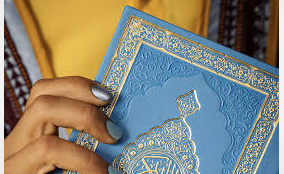Yes – it’s a bit of a mouthful of a headline but well worth reading to start to try and understand psychedelics from other perspectives
Until she was a sophomore in Claremont McKenna College, Haya Al-Hejailan believed that all drugs were bad. Al-Hejailan grew up in Saudi Arabia, where Islam—which deems intoxicants haram, or a crime against God—informs the constitution.
In Saudi Arabia, possession of drugs can garner prison sentences or public floggings, and selling them can result in the death penalty. Breaking a brief moratorium on executions for drug offenses—coinciding with progressive moves under the leadership of Crown Prince Mohammed bin Salman—Saudi Arabia has reportedly executed 20 people for non-violent drug-related crimes in November 2022 alone.
Al-Hejailan’s perspective on drugs shifted when James Fadiman, a longtime psychedelic researcher, came to speak at her college in 2013 about the psychedelic renaissance. “The lecture changed my life,” she told DoubleBlind in an interview. “For the first time, I was listening to an actual scientist talking about psychedelics. I walked out of there having to pick up my jaw and re-attach it to my face.”
After Fadiman’s lecture, Al-Hejailan switched her major from Government and International Relations to psychology, and when she graduated in 2017, she thrust herself into the field of psychedelics. She has since become a psychedelic integration and harm reduction trainer with Fluence, taught a class on psychological approaches to psychedelic therapy, and assisted in Ketamine-assisted psychotherapy trainings. She is also currently co-producing and co-directing a documentary on the psychedelic movement, entitled “Psychedelic Renaissance.”
Currently based back in Riyadh, Al-Hejailan has launched the Arab Psychedelic Society—as an Instagram page—after initial trepidation. “Honestly, I was scared people would say I was promoting drugs,” she said. But after an interview with Al-Hejailan, published in Saudi-based newspaper Arab News, received overwhelmingly positive feedback, with tens of researchers reaching out to discuss ideas for collaboration and many more inquiring about the availability of psychedelic treatment, she felt “it was time to take a risk.”
In the interview below, Haya Al-Hejailan talks to DoubleBlind about her plans for the Arab Psychedelic Society.
DoubleBlind: Why do you think that lecture by James Fadiman left such an impact on you?
Haya-Al-Hejailan: I grew up in Saudi during the very Wahabi [an austere Islamic movement that prescribes literal, and strict, interpretation of the Quran] period, so I would say that like many Saudi women, I was experiencing complex PTSD. I was also beginning to explore my own mental health, and I was very unhappy with the treatment I was getting. I was just fed pills, basically. And it was never really about getting to the root of my issue. So I was very frustrated and disillusioned with the mental health infrastructure. And when I attended this lecture by Dr. James Fadiman, I realized that there are other methods that have been used for thousands of years that do just that; they tackle the core root. And I just thought to myself, if I were ever to become a therapist, I can’t look my patients in the eyes and tell them, ‘hey, I know there’s something that can actually really help you out, more than the prescription that you’re going to be getting from the psychiatrist, but I can’t use it to help you, because it’s illegal.’ I just felt like it was my duty in a sense or my calling to actually make this kind of treatment available to everyone around me.
Read the full article
This Saudi Woman is Creating Psychedelic Community in the Arab World

















